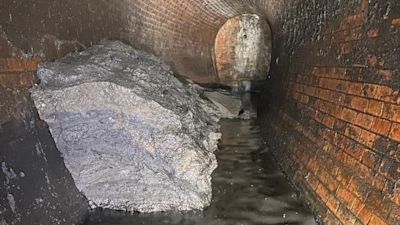'Sink spies' show 'shocking' household habits contributing to UK's £100 million per year 'fatberg' bill

Consumer Editor Chris Choi takes a look at households' kitchen sink habits
"Sink spies" have been using special cameras to observe households in the kitchen - and experts describe the results as "shocking".
Washing-up bowl behavior of volunteers across England and Wales was analysed in a new drive to prevent "fatbergs" - large lumps of fatty material in which hair, sanitary products and wet wipes get stuck and block sewers.
The new findings, released by the Consumer Council for Water, show people pouring fat down their drains, despite believing themselves to be environmentally friendly.
Action against "fatbergs" is urgent, they are blocking our sewers, causing flooding to properties and polluting rivers.
There is a big affect on our water bills, with the impacts of these fatty blockages costing around £100 million a year. There are an estimated 300,000 sewer blockages annually, affecting thousands of homes.
In Birmingham, there is an ongoing battle to remove a 300-tonne fatberg that is lodged in the sewers. It is a vast lump of oil, grease and unflushable material such as wipes and nappies.
In Liverpool, a fatberg 250 metres long has been removed from the sewer system, it weighed an estimated 200 tonnes and cost £100,000 to unclog.
In London, earlier this year engineers spent two weeks dislodging a gigantic fatberg from pipes below Canary Wharf.
The new "fatberg" findings reveal myths surrounding the disposal of cooking fat, with many householders believing hot water and detergents mean there is no problem pouring oil and grease down their sinks
Experts say the average cost for unblocking a domestic drain is now £279 and advise us to dispose of leftover cooking fats by letting them cool before scrapping them straight into the bin.